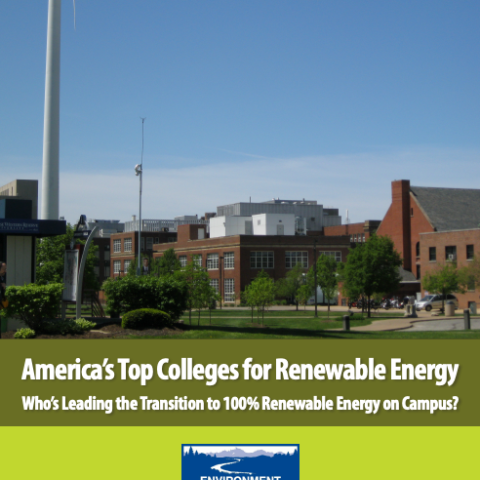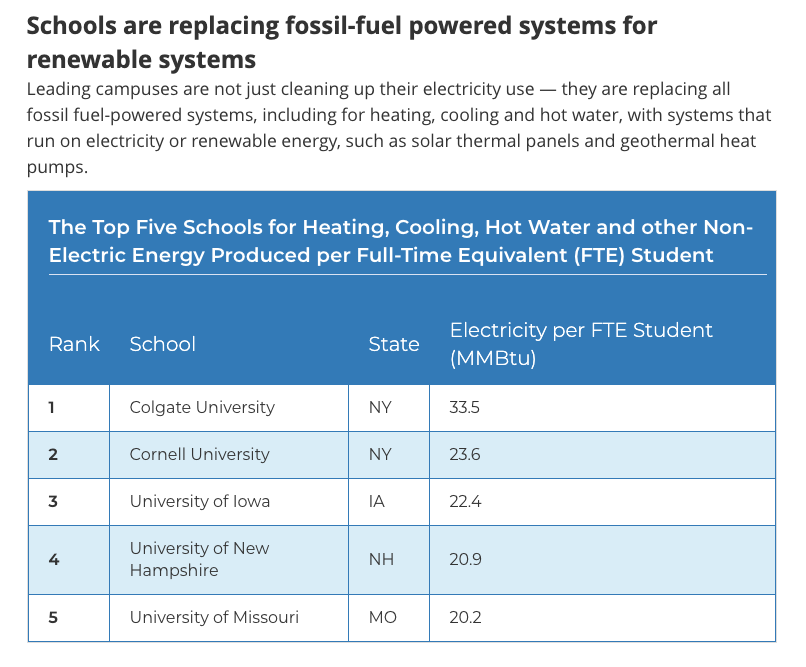
Awarding renewable energy accolades in several categories, Environment America has ranked Cornell second in the list of schools replacing fossil-fuel powered systems with renewable systems for efforts to transition heating, cooling, and power systems over the last decade.
In a story published earlier this summer by Environment America - a national environmental advocacy group that works at the state, city, and college campus level to advocate for change to protect the planet - Cornell made the list in the category of higher education institutions that have improved "Heating, Cooling, Hot Water and other Non-Electric Energy Produced per Full-Time Equivalent (FTE) Student."
Schools that seize these opportunities draw the attention of potential students. A 2019 Princeton Review survey of nearly 12,000 college applicants found that 64 percent would factor in schools’ environmental commitments — including commitments to adopt renewable energy — when deciding where to attend.
Colgate University, also located in New York State, was featured first in this category for having multiple renewable energy systems, including solar thermal panels that heat water, and a geothermal system that draws from the earth’s stable temperature to provide heating in the winter and cooling in the summer.
The group noted that "college campuses are ideal places to lead the renewable energy transition" due to their ability to adopt microgrids, and district heating and cooling systems.
Cornell's Associate Vice President for Energy & Sustainability has been invited to give a keynote lecture on Cornell's district energy and carbon neutrality innovation this June at the annual International District Energy Association (IDEA) Conference. Colleges are large energy users, and are uniquely suited to employ microgrids and district heating and cooling systems that expand the potential uses for renewable energy.

